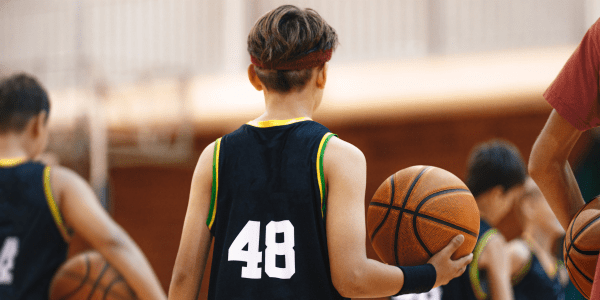A Slump or Losing Streak Starts as Nothing Unusual
Every athlete and team occasionally experiences bad games or unproductive performances.
So, what turns a few bad games into a performance rut? What commonalities trap a player or team in a cycle of under performance?
If your sports kids can identify a common element to losing streaks, they can more easily find a solution, interrupt the loop and break out of the slump.
Let’s look at what happens during a slump. Kids’ thoughts and expectations perpetuate losing streaks. Young athletes expect the worst.
They focus on negative thoughts during the competition, including:
- “Here we go again.”
- “Just when I thought things couldn’t get any worse.”
- “Another loss heading my way.”
After a loss, they continue the negativity by saying:
- “I knew I wasn’t going to win.”
- “It doesn’t matter anyway. I’m already having a losing season.”
- “Chalk up one more in the loss column.”
Athletes predict a loss, and then when they lose, they use the loss as evidence to support their pessimistic prediction.
In this example, losing isn’t the bad habit. Sports kids’ negative thinking and expectations is the counter-productive habit.
A habit is an action or thought people do often and regularly, sometimes without being aware of the habit. Since many of our habits are unconscious, they can be difficult to give up–especially bad habits.
Kids need to identify their unconscious and counterproductive thoughts to break or replace bad habits.
When athletes become aware of how their habitual thoughts and expectations hurt their performance, they can start consciously replacing those thoughts with positive thoughts that enhance their performance.
The Edmonton Elks of the Canadian Football League set the mark for the longest home-losing streak in North American pro sports.
The Elks lost 21 consecutive home games stretching back to Oct. 12, 2019. The Elks’ 21st loss was a shutout by the B.C. Lions, 27-0. In the game, Edmonton committed 13 penalties for 177 yards.
Elks quarterback Taylor Cornelius commented on the team’s frustration and hinted at an underlying expectation for negative results.
“(Frustration) is at an all-time high right now,” he said. “The first half, we get behind the sticks with penalties, it seemed like every drive it was something. And then to come out in the second half and still not put up any points for a second game in a row against these guys [B.C. Lions] is just crazy, man.”
When kids are frustrated, it’s a sign that they feel like they are not meeting their expectations.
Identifying the warning signs of negative expectations and thoughts is half the battle to getting back on track.
Kids need to challenge negative expectations or over generalizations as a first step to breaking free of losing streaks.
For example, when athletes become aware of the thought, “Here we go again… Another loss,” they should ask themselves, “Is this a reality? Am I doomed to be stuck in this rut long-term?”
When sports kids over generalize and embrace negative expectations, they can stay stuck in a negative cycle of thinking their performances will not return to normal.
Kids can free themselves from losing streaks and performance slumps by identifying their negative thinking and over generalizations.
If they’re aware of such thoughts, they can then work to overcome them.
Related Articles on Youth Sports:
- How Self-Talk Can Help Athletes When Losing a Game
- Tips for Playing Under Pressure
- Playing Through Adversity
*Subscribe to The Sports Psychology Podcast on iTunes
*Subscribe to The Sports Psychology Podcast on Spotify
The Composed Sports Kid

“The Composed Sports Kid” audio and workbook digital download program for young athletes and their parents or coach helps kids cope with frustration and anger in sports. Help your sports kids learn how to manage expectations and let go of mistakes so they can keep their head in the game.
The Composed Sports Kid system is really two programs in one–one program to train parents and coaches how to help their kids practice composure, and one program that teaches young athletes–ages 6 to 13–how to improve composure, let go of mistakes quickly, have more self-acceptance, and thus enjoy sports more!

